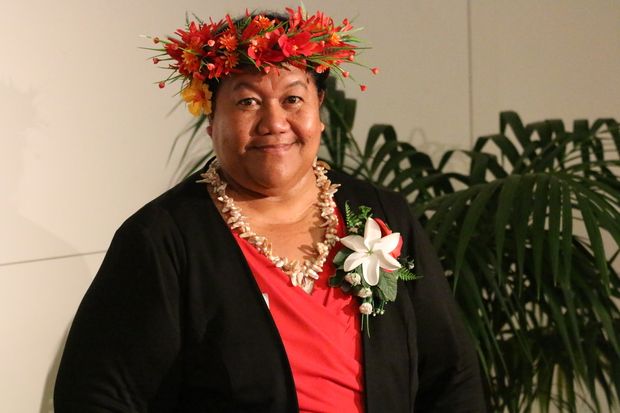

Niue Public Service building in Fonuakula, Alofi.
Photo/Television Niue
Four-day week: Why it works for a tiny Pacific island nation
Public servants in Niue have enjoyed cutting back on their hours for a decade. But not everybody is happy.


Budget relief buys time for Ōtara-Papatoetoe, but pressures remain


Moana Pasifika end Lautoka curse to win 'Battle of the Pacific'

NZ's Pacific Rainbow+ people are avoiding healthcare after facing discrimination - study

Budget relief buys time for Ōtara-Papatoetoe, but pressures remain


Moana Pasifika end Lautoka curse to win 'Battle of the Pacific'
How would you like to work 32 hours a week - eight hours a day - from Monday to Thursday and get paid for 40 hours?
It’s possible and it’s the case for workers in Niue, a realm nation of New Zealand. Hundreds of them are employed full-time for four days and paid for five days.
Employees in the country’s public service can work longer hours over fewer days since the government established the Four-Day Working Week Policy 10 years ago.
It allows public servants to work from Monday to Thursday, with Friday off, while receiving a full week's pay.
According to the Niue Public Service Commission, the four-day week aims to address several challenges for workers.

According to the Niue Public Service Commission, the four-day week aims to address several challenges for workers. Photo/TV Niue
The commission says the shorter week was introduced to offset the lack of salary increments and allowances since 2002.
It was also aimed at boosting employee morale, reducing stress and fatigue, and giving workers more time for family, community activities, and personal businesses.
Located just over 2800km north of New Zealand, Niue has a population of about 1700 people, according to a government census in 2022.
While Niue could be the only Pacific island nation to adopt such a work ethic, governments in Europe and Asia are seeking to implement a similar policy.
In New Zealand, many workers have longed for a four-day workweek for years and for some companies it’s already permanent.
Under New Zealand law, employees and employers are free to agree to a maximum work week of more than 40 hours. Both parties just need to put it in their employment agreement.

Located just over 2800km north of New Zealand, Niue has a population of about 1700 people, according to a government census in 2022. Photo/Niue Tourism
Some experts believe there is no reason why a 48-hour week then could not work if both parties were willing.
In the United Kingdom, the government has been meeting with business leaders to discuss a plan as part of the upcoming Employment Bill.
Since April, employees have had the right to request a flexible working week including compressed hours. At the moment, workers need to convince their employers to approve the shorter week.
However, the UK proposals do not match the four-day week campaign, which is seeking same pay for fewer hours.
In Japan, the government aims to offset labour shortages with the prospect of four-day work weeks.
Hoping to produce more takers, particularly among small and medium-sized businesses, the Japanese government launched its ‘work style’ reform campaign.

In Niue, people often wear multiple hats because balancing these commitments can be exhausting. Photo/Broadcasting Corporation of Niue
Back in Niue, workers have limited formal education, which can hinder the development of a highly skilled workforce. However, Niueans possess traditional skills in the agriculture, fishing, and handicrafts sectors.
In Niue, people often wear multiple hats at home, in the community, in villages, churches, schools, in non-governmental organisations, and in the private sector, balancing these commitments can be exhausting.
The four-day workweek was seen as a way to ease this burden and promote healthier work-life balance.
The arrangement has generally been well-received by Niue’s public servants, providing them with Fridays to manage their additional roles and responsibilities.
But Niue’s Member of Parliament, O’Love Tauveve Jacobsen, says while the policy was necessary 10 years ago, she has questioned the validity of its continuation today.
“Is it the right thing to do?”
The Common Roll MP says she understands Niueans have multiple roles, but Jacobsen is unsure about the measures to ensure the four-day week is not abused.

Niue's Common Roll MP O'Love Tauveve Jacobsen. Photo/RNZ - Daniela Maoate-Cox
“It’s subject to people abusing it.
“You give an honest day's work for an honest day's pay,” she said.
Jacobsen argued this was unsustainable and could set a dangerous precedent.
However, the decision is up to the leaders, she said.
The policy has been reviewed multiple times, with the most recent survey in 2021 showing 83 per cent of public service employees in favour of continuing the four-day model.
However, the future of the policy depends on government decision-making.
The concept is also gaining popularity globally, with many organisations seeing the benefits of a balanced approach to work and life.